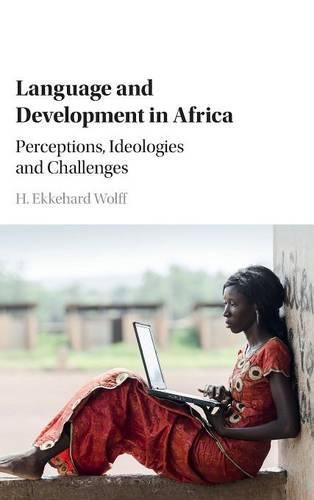Readings Newsletter
Become a Readings Member to make your shopping experience even easier.
Sign in or sign up for free!
You’re not far away from qualifying for FREE standard shipping within Australia
You’ve qualified for FREE standard shipping within Australia
The cart is loading…






Development is based on communication through language. With more than two thousand languages being used in Africa, language becomes a highly relevant factor in all sectors of political, social, cultural and economic life. This important sociolinguistic dimension hitherto remains underrated and under-researched in ‘Western’ mainstream development studies. The book discusses the resourcefulness of languages, both local and global, in view of the ongoing transformation of African societies as much as for economic development. From a novel ‘applied African sociolinguistics’ perspective it analyses the continuing effects of linguistic imperialism on postcolonial African societies, in particular regarding the educational sector, through imposed hegemonic languages such as Arabic and the ex-colonial languages of European provenance. It offers a broad interdisciplinary scientific approach to the linguistic dimensions of sociocultural modernisation and economic development in Africa, written for both the non-linguistically trained reader as much as for the linguistically trained researcher and language practitioner.
$9.00 standard shipping within Australia
FREE standard shipping within Australia for orders over $100.00
Express & International shipping calculated at checkout
Development is based on communication through language. With more than two thousand languages being used in Africa, language becomes a highly relevant factor in all sectors of political, social, cultural and economic life. This important sociolinguistic dimension hitherto remains underrated and under-researched in ‘Western’ mainstream development studies. The book discusses the resourcefulness of languages, both local and global, in view of the ongoing transformation of African societies as much as for economic development. From a novel ‘applied African sociolinguistics’ perspective it analyses the continuing effects of linguistic imperialism on postcolonial African societies, in particular regarding the educational sector, through imposed hegemonic languages such as Arabic and the ex-colonial languages of European provenance. It offers a broad interdisciplinary scientific approach to the linguistic dimensions of sociocultural modernisation and economic development in Africa, written for both the non-linguistically trained reader as much as for the linguistically trained researcher and language practitioner.